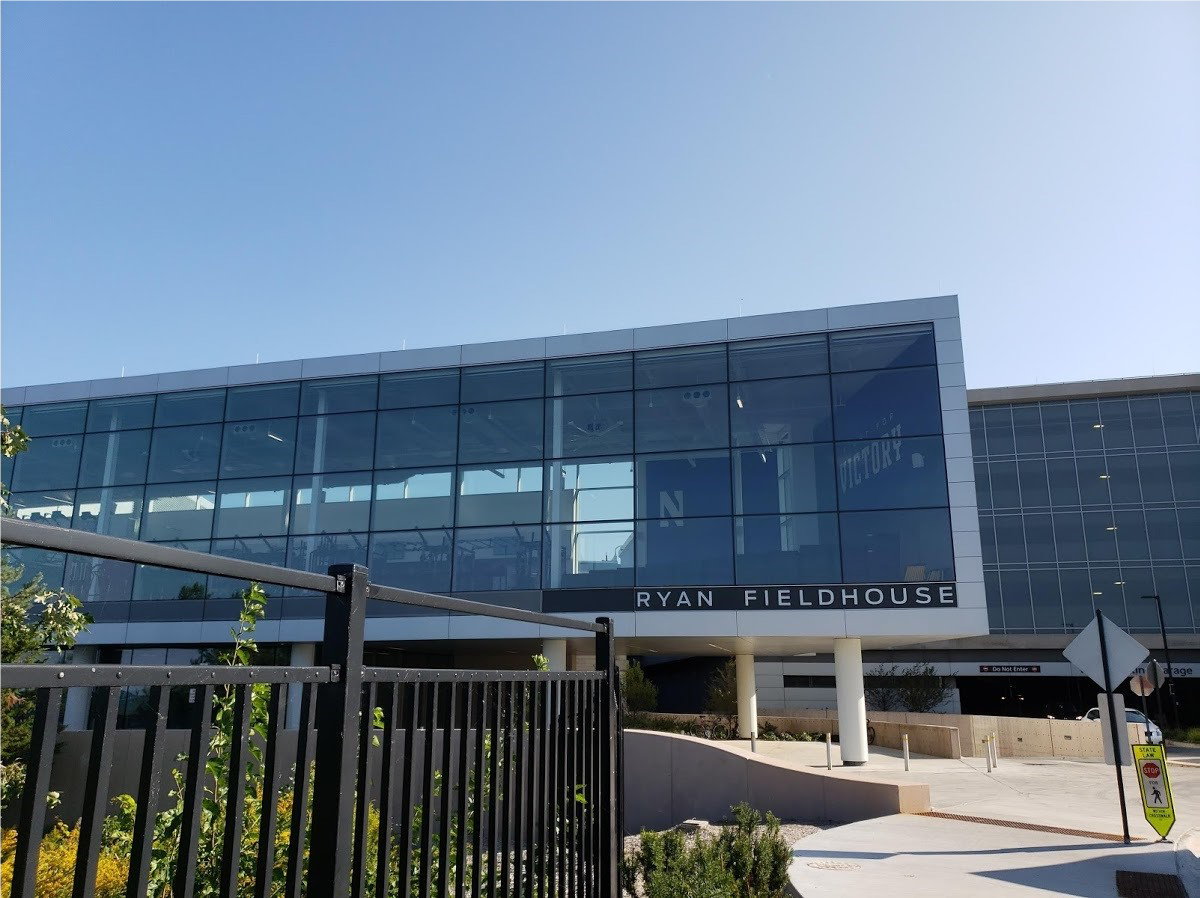
Rethinking FRP as a Design-Focused Material
Fiberglass Reinforced Plastic – known as FRP – isn’t traditionally known for its aesthetic appeal. Used primarily in moisture-resistant environments like kitchens and bathrooms, most people choose FRP due to its durability rather than its look. Now, three different vendors of L&W Supply are out to change the industry’s perception of FRP panels.
“FRP doesn’t have to be that harsh white material you find in the shower,” says Shane McNutt, Director of Business Development for Nudo.
Known for their high-quality wall and ceiling building materials, Nudo has tangentially evolved its FRP product into its CeramicSteel, a family of products that offers a more durable and aesthetically pleasing panel than the average FRP product. These tiles are coated with a durable ceramic material that offers custom colors and the ability to print logos and other designs.
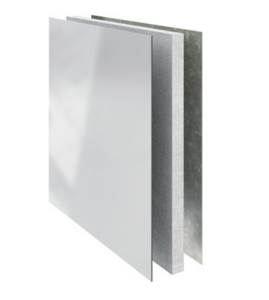
Nudo CeramicSteel Panels
“Though FRP is a durable product, we saw a need for a high traffic panel for multiple industries including sporting arenas, airports, hospitals, and higher education,” McNutt says. “CeramicSteel is a front-of-house, decorative option that offers panels that are scratch and graffiti resistant, as well as impact resistant, taking FRP to the next level.”
With branches across the country, L&W Supply has witnessed the push for more striking, industrial, and impact-resistant spaces firsthand. Primarily with new restaurants, healthcare facilities, and colleges, architects and building owners are becoming more interested in a stripped-down, rustic vibe that takes advantage of a building’s natural charm.
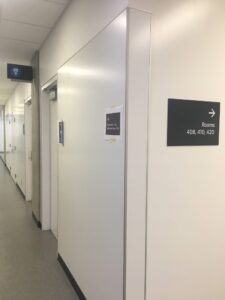
Northern Alberta Institute of Technology
“Builders and building products distributors are responding to the external demand for more innovative and modern spaces,” says Marty Naeger, National Merchandising Manager for L&W Supply. “Many designers are choosing to leave aspects of their buildings unfinished and exposed, which provides vendors and distributors with an interesting opportunity to push certain materials.”
CeramicSteel was created in 2017 when the Northern Alberta Institute of Technology approached Nudo for an FRP solution to redo the inside walls of a dormitory. After learning more about the University’s need for longevity, strength, and resistance to humidity, Nudo crafted a new FRP product that would last 20-30 years in high-traffic areas, with the option to add school colors or logos.
For a cleaner look, Nudo decided to go with a seamless panel over a divider trim, helping the hallways feel like a dormitory rather than a warehouse or laboratory. The scope of this project required roughly 100 sheets and cost $150,000 to complete.
Nudo isn’t the only company making strides in changing the way people think about FRP. Crane Composites has been merging the structural integrity of FRP with an attractive look through their new and innovative DESIGNS and Varietex lines.
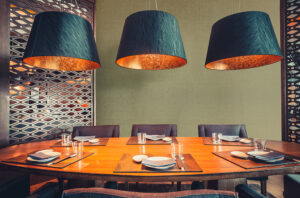
Crane Composites DESIGNS Line
“People tend to think of it as something utilitarian, rather than cosmetic,” Jake Butman, Market Manager for Commercial Building Products at Crane Composites says. “You’d use it in an industrial area not seen by building occupants that much.” Crane is among the businesses changing this dynamic.
In the restaurant industry, in particular, “walls are coming down; kitchens are more open,” Butman says. “The Chipotles of the world have changed the way we eat. You see the people preparing the food, you see the back of the kitchen. It’s a more transparent experience for the customers so the materials have to look more desirable—not only perform but match the brand aesthetic.”
While Crane’s series of FRP products offer durability, their true selling point lay in their complete resistance to mold and mildew, as well as their warm, welcoming patterns. This helped Crane stand out to Olive Garden, currently undergoing a nationwide redesign in its kitchens.
The restaurant chain went with Crane Composites for the project, choosing a Pepper Dust color from their Varietex line with a linen texture for its panels. The panels also stood against a gauntlet of tests, withstanding ketchup, mustard, and cooking oil, as well as the physical hazards of an Olive Garden kitchen: servers, plates, utensils, and an endless supply of breadsticks.
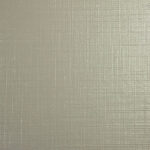
Varietex in Pepperdust Color from Crane Composites
The 10-year shelf life of the panels fit Olive Garden perfectly. Like many restaurant chains, Olive Garden remodels on average every seven years, which means Crane’s FRP serves as a more fitting solution than CeramicSteel; there is no need for 20-30 years of strength when the panels will be up for less than half that time.
Much like tiles, these FRP panels are installed by troweling a putty-based adhesive onto the backs. This project is happening in a slow rollout over the next 18 months, and all told will cost $250,000.
With the advent of more advanced FRP technology, vendors are continuing to push incredible new developments that give architects and building owners greater flexibility in their design choices. This is how a material that was once considered bland and utilitarian can now be thought of in a totally different way. Marlite, with their BlueSky advanced finishing system, now offers one of the industry’s most innovative FRP products.
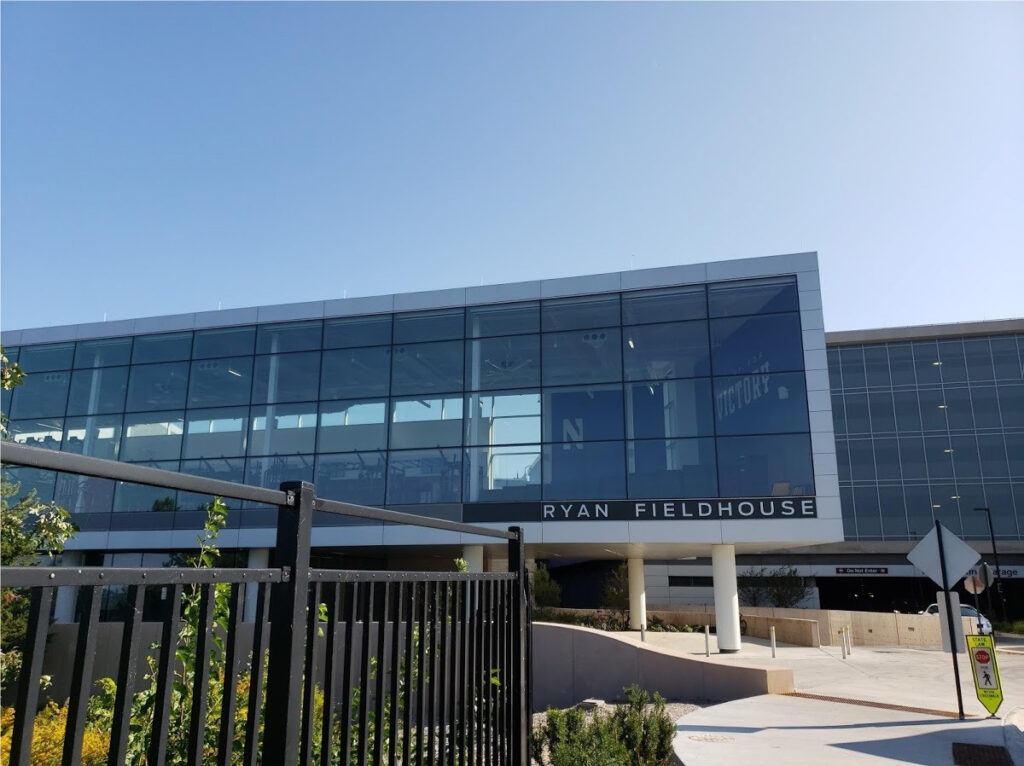
Ryan Fieldhouse at Northwestern University
By allowing users to customize and print their own colors and patterns on a variety of substrates, BlueSky offers the strength of FRP with a large amount of design flexibility. The system incorporates a cutting-edge digital printer for replicating photos, scanned images, and patterns onto wall panels, ceilings and other interior applications. Once limited to kitchens and restrooms, products like BlueSky can now be found in offices, college campuses, and a wide variety of other commercial spaces, including here in Chicago at Northwestern University.
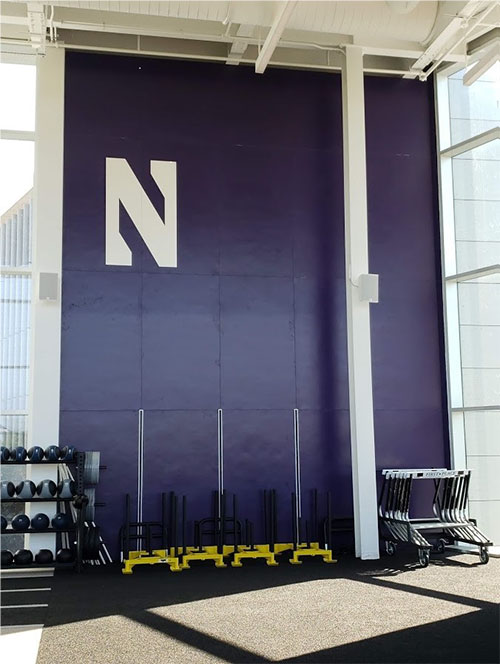
Marlite BlueSky panels featured at Northwestern University
One of the country’s leading Big 10 universities, Northwestern is located along Chicago’s lakefront on the far north side. Their student recreation center – Ryan Fieldhouse – is one of the most versatile exercise facilities in the country, featuring incredible views of Lake Michigan and the Chicago skyline. Marlite’s BlueSky was the perfect solution for Ryan Fieldhouse, with a durable top coat that provides both impact resistance to exercise equipment and the ability to print the school’s logo and colors across massive wall panels. The panels are displayed prominently when looking in through the building’s large facade in the main entrance of the facility.
As the future of construction changes, so too does the interest in continuing to expand the use and application of FRP. The future of this versatile, water-resistant, and easy-to-install material is looking very bright when it comes to high-use spaces.
Download the Sales-Friendly PDF Version Here
The information provided is for general informational purposes only. All information provided is in good faith, and is not intended as a substitute for obtaining accounting, tax, legal, or financial advice from a professional accountant or lawyer. Any opinions expressed are those of the author. L&W Supply makes no warranties of any kind, express or implied, regarding, the accuracy, adequacy, validity, reliability, availability, or completeness of any information provided herein. Any questions regarding the information provided should be addressed to the author.
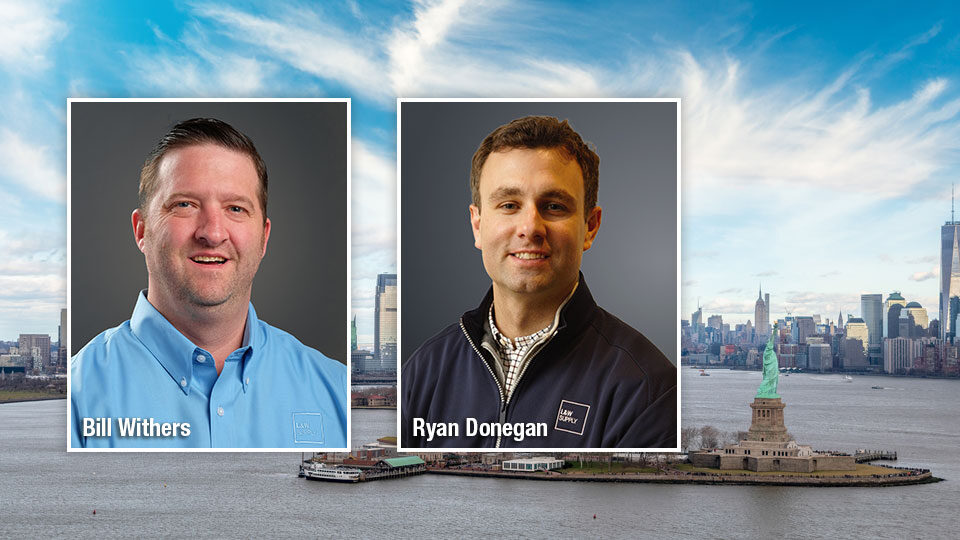
L&W Supply Announces North Atlantic Region Realignment and Promotions
Bill Withers and Ryan Donegan promoted to district managers to support regional growth BELOIT, WI — December 9, 2025 — L&W Supply, one of the nation’s leading distributors of interior building materials and construction supplies, has announced the promotions of Bill Withers and Ryan Donegan to district manager roles within its realigned North Atlantic Region […]

L&W Supply Announces New President
Frank Marcoccio will succeed Dan Piché as president of L&W Supply, effective January 1, 2026 BELOIT, WI — October 1, 2025 — ABC Supply Co., Inc., announced Frank Marcoccio will succeed Dan Piché as president of L&W Supply, a nationwide wholesale distributor of interior building materials and construction supplies. This transition will be effective January 1, […]